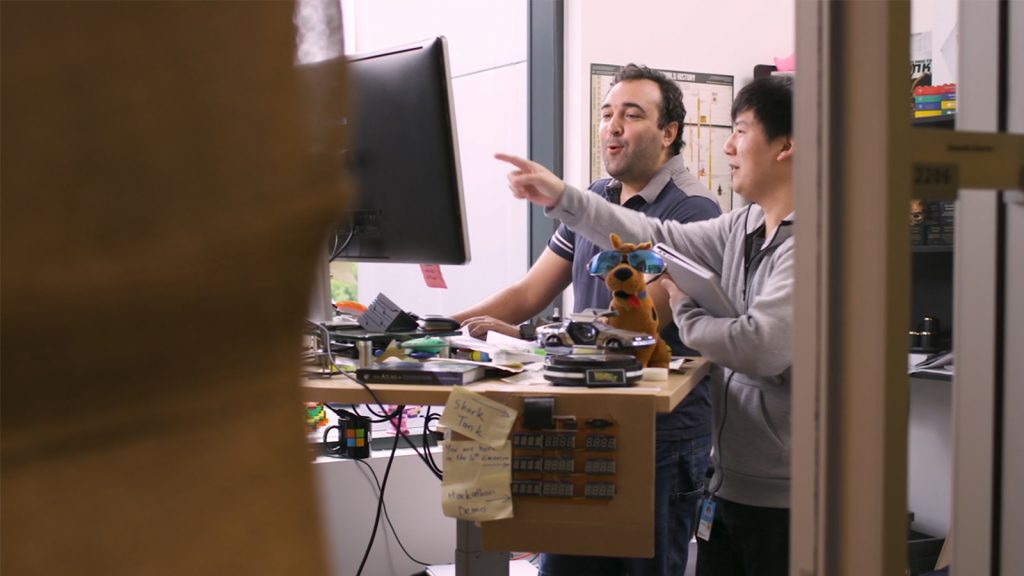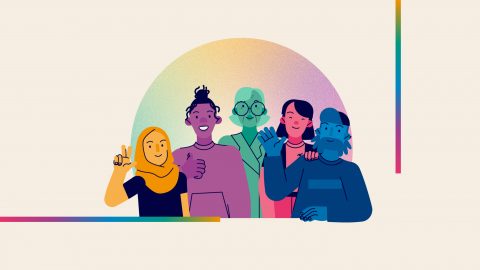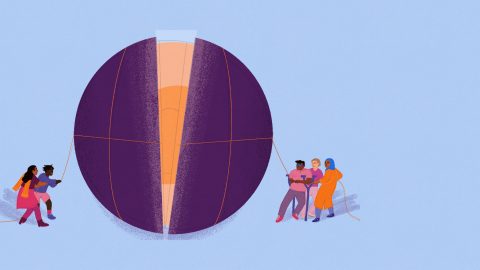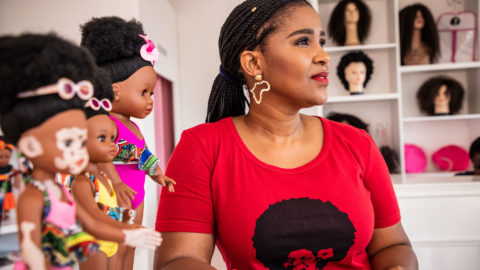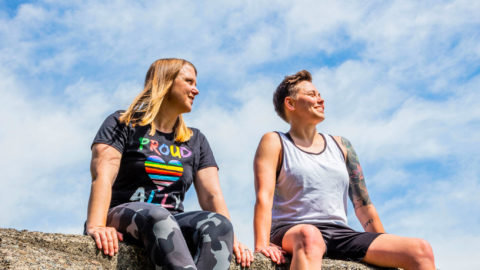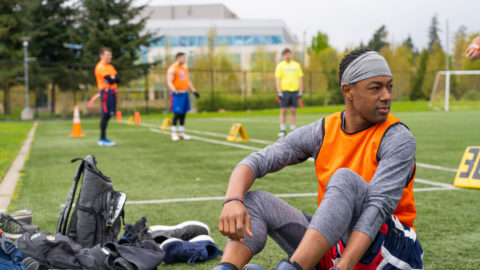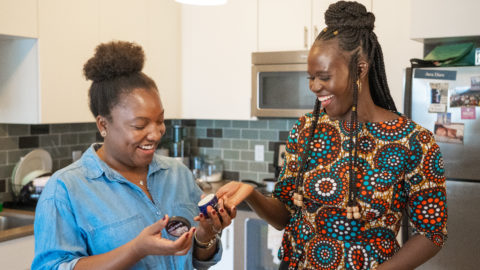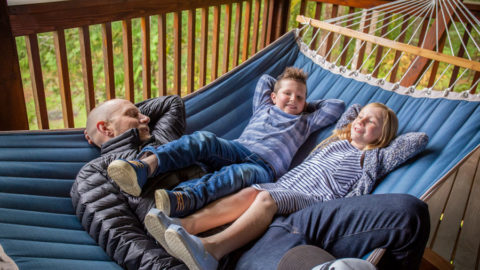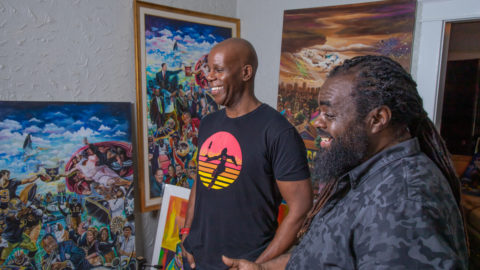No idea left behind: compulsive hacker Alex Gueniot on how hackathons give life to hidden ideas
PowerPoint engineer Alex Gueniot enters company hackathons like it's his day job
Editor’s note: Alex Gueniot cannot stop creating new projects at company hackathons. Here, he tells our writer all about it in his own words.
I compulsively need to create and to collaborate with people. That’s why I’ve been involved in almost 20 hackathon projects in the past seven years. One year, I was on six hackathon teams at once. Good luck getting me to stop multitasking.
As the senior software engineer for PowerPoint driving technical implementation of new features, I have this thing where I just can’t give up on good ideas. I really believe that nothing is impossible. If you start by assuming things are impossible, they will be. We recently shipped 3D in Office; I did the first prototype of it in our 2016 summer hackathon with the help of a partner team. We announced the feature in October and shipped it the next year during the summer.
Hackathons, which are basically design sprints, are great for advancing good ideas. They are short events, usually two or three days, when anyone on a team can participate in creating or changing something. We have a major company-wide Hackathon each summer, but different teams and groups hold their own versions as well.
It’s a good way to work on something you like, it’s a great learning experience, and it provides a unique opportunity to show your ideas to management.
The first step of a hackathon is to have an idea, and then you gather a team. Officially, you have a short window when you can focus on your hack without having to do any other work, but it’s always a good idea to start early and plan ahead. Depending on the hackathon, projects could be demonstrated on stage one after the other or in a science fair where every team has a booth. There is an award ceremony at the end for the best hacks, but it’s not a real competition: there are no losers, and everyone has a chance to have fun, try an idea, and show it to others.
The teamwork of it all excites me. I’ll be at lunch with a coworker or a bunch of us will be talking in the hallway, and an idea will strike them, and I’ll say, “Hey, that would make a good hackathon project.” If they say they can’t, that they aren’t the expert in that area, or that they don’t have time to try, I’ll tell them that we can do it together.
I also like how hackathons force you to find side routes to arriving at answers, something I’ve always been interested in. Before I started working at Microsoft, I had this idea to do an animated résumé. So, I created a little video called Flash CV, and it ended up going viral—which is strange to me because my singing on the video is very bad. But doing something creative worked for me. I guess I just don’t like to do things in the usual way.
Hacking gives everyone on a team a chance to express an idea and to be creative. It goes against the top-down, hierarchical way of doing business. Microsoft, and other technology companies, have so many creative, smart people who should be allowed to share their ideas—even if the ideas seem impossible. It’s not easy to follow through with them, and many times I’ve had ideas that people hated. But that may be a lesson in how to sell your idea, which I also get to learn by working here.
For example, the PowerPoint team holds a biyearly hackathon event called Hack Tank. PowerPoint employees form teams, create features, and then pitch ideas to the management team. The winners usually get their ideas funded. Some new features like the Slide Zoom feature and Morph transition were my teams’ projects. Getting to see the teams’ work make it to the final product is exhilarating.
The trick to balancing a lot of ideas and projects is to start early. I usually don’t wait for the hackathon; if I have an idea and it’s quick, I try it immediately, and save it for later. I always have two or three projects waiting for the next hackathon. I recycle projects a lot because projects evolve into better projects, and sometimes hacks are just extensions of real features I work on during my day job.
People who think it’s cheating to start early are missing the point. Our hackathons are not really a competition; they’re an opportunity to show ideas to an audience. It’s not about showing off what we can do as individuals but more about showing a vision of what we can build together.
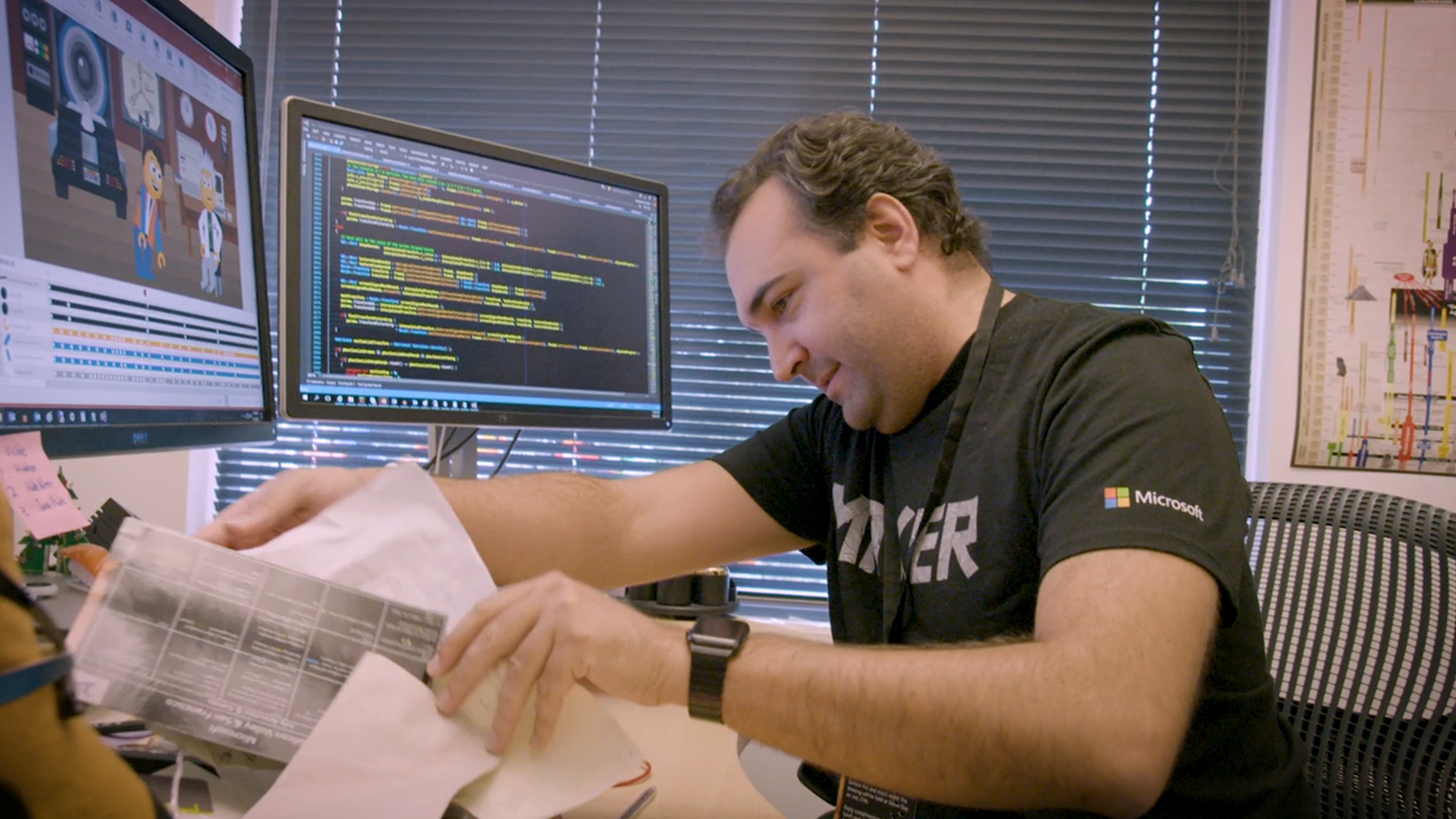
We are one of the rare companies working hard to make tools that are accessible to everybody. My 10-year-old niece has her own computer with Office installed and was playing with PowerPoint when I visited her last month. She was playing with the features that I made! Even kids can have fun playing with applications like PowerPoint. That feels important to me because just by being my natural, creative self who refuses to see any idea as a bad idea means that I get to join Microsoft in impacting the world around me. Anyone here can do this—any hack can open up a person’s world forever.

